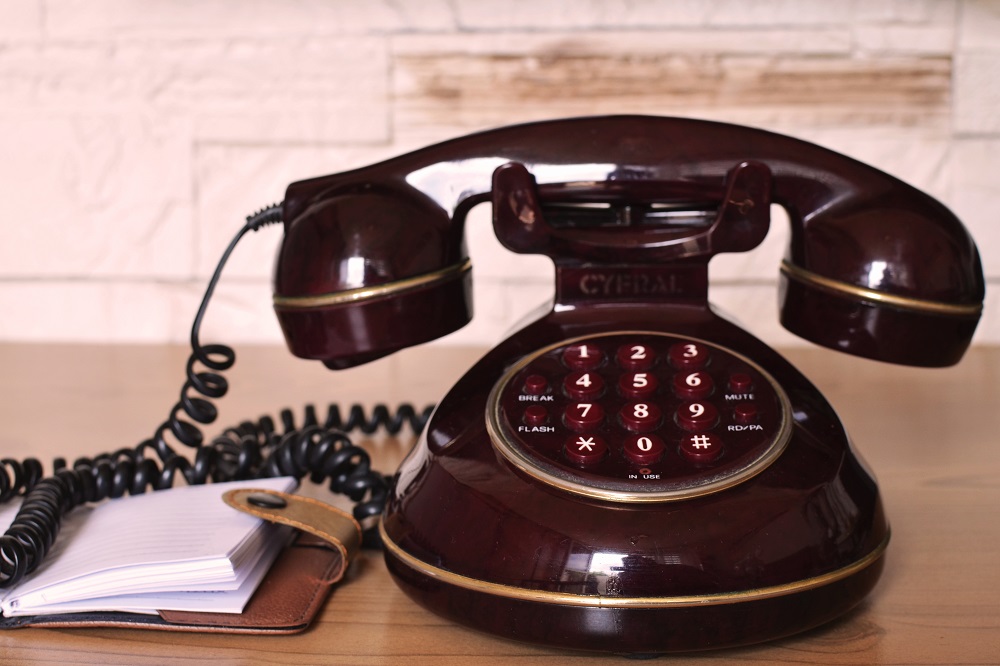A Brief History of the Home Telephone
A look back into the history of the home phone is a reminder of why picking up the phone to a friend still holds value.

Ahoy! If Graham Alexander Bell - the inventor of the world’s first telephone - had his way, that would be our standard greeting when answering the phone. Instead, Thomas Edison suggested “Hello”, a term that - like the telephone - quickly spread through our culture to the point where it’s hard to imagine a day without using it.
These days, the smartphone is king, offering internet, organisational tools and calls in a pocket-sized package. However, a look back into the history of the home phone provides a reminder of why in a world of Facebook messages and Snapchats, simply picking up the phone to a friend or loved one still holds value.
The First Home Phone
Alexander Graham Bell stumbled upon the idea for a whole new form of communication while searching for ways to improve the code-based telegraph system. Researching ways to send multiple telegraph signals down a single wire, he was struck with the idea of a “harmonic telegraph”, that would transmit sound rather than visual information. From here, he spent many years experimenting with the transmission of non-verbal sounds, until in1875, he used the first telephone machine to call his assistant, Thomas Watson, with the immortal words, “Mr. Watson -- come here -- I want to see you”. One year later, he was able to demonstrate his invention to the world at the Centennial Exhibition in Philadelphia, and within a decade, telephone exchanges began popping up around the USA, allowing telephone signals to be directed to specific receivers.
The Growth of Home Phones
By the 1930s, it was common for affluent homes in the UK to have their own telephones, with networks spreading far enough for calls to be made across several cities. The majority of callers continued to use local phone boxes or pay phones until the 1950s and 60s, when improvements in home phone technology made systems cheaper and more easily available. Alongside push-button telephones, which replaced the old fashioned rotary or dial phones, the 60s introduced the answer machine, making it possible for callers to leave short verbal messages if the phone wasn’t picked up. The 1980s brought a particularly insightful addition to the home phone family, with the invention of the cordless handset, allowing callers to move around the house while talking on the phone, and paving the way for later mobile phone technology.
Mobile and VOIP
Nowadays the majority of homes still maintain a landline, enjoying benefits such as free evening and weekend calls, as well as routing internet services via their phone lines. However, mobile calls and online chat services have become overwhelmingly popular, to the point where many younger homeowners are considering ditching their landlines in favour of more recent communication technologies.
The Future of Home Phones
Are home phones on their way out, usurped by the portability and perks of cellular technology? We don’t think so. Landline-to-landline calls remain amongst the cheapest ways of contacting someone, and international calls are still remarkably cheaper as part of a landline bundle as they are via mobile phones. Furthermore, tests show that the sound on home telephones remains superior to that via mobile phones, so for a truly important conversation, landlines guarantee an uninterrupted and high-quality experience.
You may also want to consider emergency situations when deciding the value of a landline. Because your landline phone works off the grid, you know it will never have run out of battery when you find yourself in a tight situation. A handset with battery backup in its corded base will even work in a power cut. Likewise, your home phone system is connected to your address, allowing emergency services to locate your property instantly.
“For me a landline is essential,” explains italk Sales Team Leader Fiona McLean, “In case of an emergency, I must be able to contact someone if my mobile has no reception. I like having the peace of mind that my home phone will always be there when I need it!”
Home phones may seem old fashioned compared to our internet-based lifestyles, but we believe in their enduring value for meaningful conversations and crucial situations. At italk we want to offer you the best of both worlds, with great landline packages to fit every budget, as well as the option to save on unlimited broadband. Check out our packages now, and find one that’s right for you!
